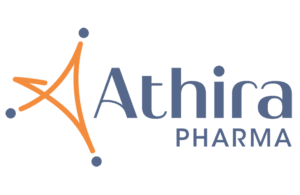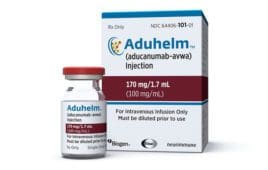 The neurodegeneration-focused biopharma Athira Pharma (Nasdaq:ATHA) has seen its stock drop more than 90% since December 31, 2020. Today alone, the company’s share price was down 66.73%, falling to $2.81, in mid-day trading after the company announced disappointing results from the Phase 2 ACT-AD study focused on fosgonimeton in Alzheimer’s disease.
The neurodegeneration-focused biopharma Athira Pharma (Nasdaq:ATHA) has seen its stock drop more than 90% since December 31, 2020. Today alone, the company’s share price was down 66.73%, falling to $2.81, in mid-day trading after the company announced disappointing results from the Phase 2 ACT-AD study focused on fosgonimeton in Alzheimer’s disease.
The company announced that the study failed to meet its primary endpoint, which involved a statistically significant change in event-related potential (ERP) P300 latency.
P300 is a measure of decision-making detected using electroencephalography (EEG).
Athira did note the suggestion of a positive effect in a pre-specified subgroup analysis in ERP P300 latency and Alzheimer’s Disease Assessment Scale-Cognitive Subscale (ADAS-Cog11) at week 26 relative to placebo.
“Following compelling ERP P300 latency biomarker data from a small Phase 1b trial over eight days in Alzheimer’s patients on fosgonimeton monotherapy, this Phase 2 trial provides valuable insights into the nature of this novel intervention over 26 weeks,” said Dr. Hans Moebius, chief medical officer of Athira, in a news release.
“ACT-AD was designed as a learning study to further investigate the ERP P300 biomarker signal over 6 months, assess safety in a patient population more representative of the real world, by allowing the use of add-on standard-of-care acetylcholinesterase inhibitors (AChEIs, e.g., donepezil), and explore fosgonimeton’s effect on psychometric outcomes, including ADAS-Cog11, to inform the ongoing Phase 3 LIFT-AD study. To that end, this study achieved its goal.”
Moebius noted that a post hoc analysis related to the study showed a “meaningful improvement” in ERP P300 latency (-28 milliseconds) and cognitive performance (ADAS-Cog11: -3.3 points) relative to placebo.
The drug candidate was generally well tolerated in the study.
In October 2021, Athira’s former CEO, Leen Kawas, relinquished her role in the wake of research misconduct allegations. In June 2021, the company’s stock fell almost 40% after placing Kawas on leave.
Post hoc analyses played a role in convincing Biogen (Nasdaq:BIIB) to pursue market authorization for Aduhelm (aducanumab), a controversial drug that has faced a series of setbacks over the past year.
Filed Under: Neurological Disease



